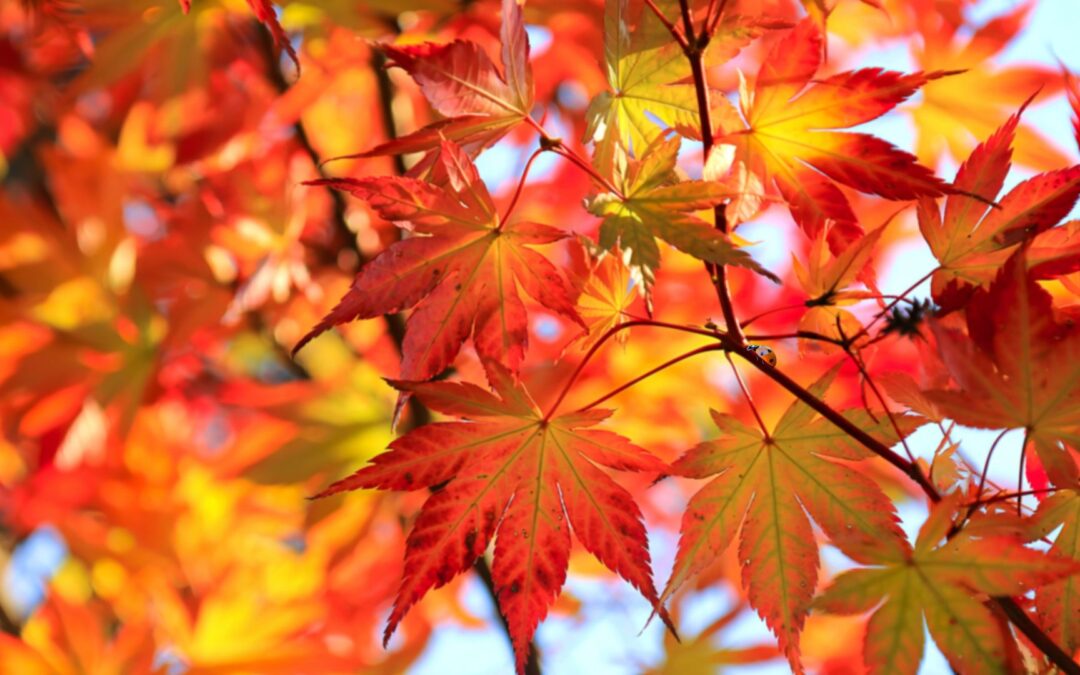by Steven Norris
It was a Friday around lunch. I had gotten the famous hamburger special at Milltowne Gourmet (only available on Fridays) but had decided to eat my lunch outside. The day was idyllic — warm sun on my skin, gentle breeze blowing, the coolness of fall setting in. Finishing the last few garlic fries, I headed for the front door of the library, only to be stopped in my tracks by a gorgeous sight.
There, tucked between buildings, was the most vibrant sugar maple I had seen in some time. I could not take in the expansive variation of reds, oranges, and yellows. Every leaf was a revelation of some new truth. It is possible that I stood there for 30 seconds; it could have been 30 minutes. Time seemed unimportant and all surrounding activity faded into the background.
As I scroll back through the photos on my phone, I see that this is not the first time that my day has been divinely interrupted by the beauty of the natural world. Spider lilies outside my office window, a rose bud in my yard, fuchsias dancing like ballerinas on a neighbor’s porch, sunsets, cloud formations, butterflies, a bee pollinating in spring — each one an artifact of the ways God has continued to speak.
That God should use creation as a means of revelation should not come as a surprise to us. The poets have been trying to tell us this for ages.
The English poet, Gerard Manley Hopkins testified, “The world is charged with the grandeur of God…And for all this, nature is never spent; / There lives the dearest freshness deep down things…” (“God’s Grandeur”).
Mary Oliver—nature’s prophet—draws our attention again and again to the divine voice speaking. “Hello, sun in my face. / Hello, you who make the morning / and spread it over the fields / and into the faces of the tulips / and the nodding morning glories, / and into the windows of, even, the / miserable and crotchety— / best preacher that ever was… / good morning, good morning, good morning…” (“Why I Wake Early”).
Wendell Berry resonates deep in my soul, reminding us that a different way is possible when we come into “the peace of wild things.” (Do yourself a favor and read the entire poem, “The Peace of Wild Things” as soon as possible.)
We live in a world that has forsaken the art of paying attention. We are too busy with our “to-do” lists to attend to the divine revelation…too satiated in the consumption of the latest scandal…too convinced that, unless we add our voice to the latest outrage, it might go unnoticed…too distracted by the latest “reel” or “Tik-tok” designed to give us quick hits of dopamine and keep us zombified with pablum.
If we were to pay attention today, maybe we would truly see the evidence of what Elizabeth Barrett Browning has been declaring for more than a century: “Earth’s crammed with heaven, / And every common bush afire with God, / But only he who sees, takes off his shoes, / The rest sit round it and pluck blackberries, / And daub their natural faces unaware” (“Aurora Leigh,” Seventh Book).

